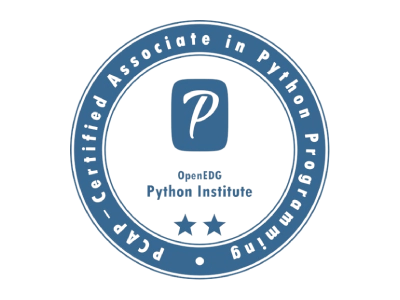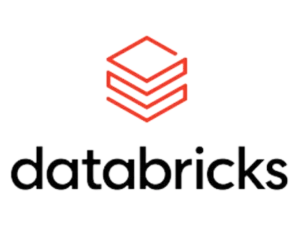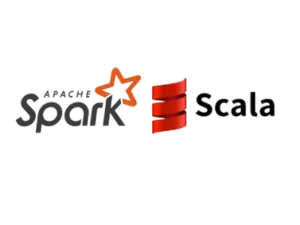PCAP™ – Certified Associate in Python
With an emphasis on Python’s Object-Oriented Programming methodology, the PCAPTM – Certified Associate Python Programmer certification demonstrates a candidate’s familiarity with the more complex facets of programming, such as list comprehensions, lambdas, generators, closures, advanced operations on strings, advanced operations on lists, Object-Oriented Programming, and the exception handling mechanism in OOP.
Overview
The more you know Python, the more opportunities it provides you with in the twenty-first century. Python is the programming language that opens more doors than any other. You can work in a wide range of sectors and vocations with a strong understanding of Python.
For those seeking to advance into increasingly complex, specialized, and lucrative software development, security, networking, Internet of Things, and engineering professions, the PCAPTM certification is a useful credential.
Who should go for PCAP™ – Certified Associate in Python course?
- Aspiring software developers
- Computer science students
- Data analysis enthusiasts
- Entry-level programmers
- IT professionals looking to expand their skill set
- Automation engineers
- Quality assurance specialists
- System administrators
- Academic researchers
- Hobbyists interested in learning programming
- Technical product managers
- Professionals in tech roles seeking to learn a new scripting language
What you will Learn in this Certified Associate in Python Programming (PCAP)?
- Understand and create Python functions, enhancing code reusability and modularity.
- Learn to handle arguments and build custom modules and packages for structured program development.
- Utilize PIP for package management and lambda functions for creating anonymous, in-line functions.
- Gain proficiency in file handling to read, write, and manage file operations within Python applications.
- Master string, list, tuple, and set methods for effective data manipulation and list comprehensions for concise code.
- Develop error handling techniques using exceptions to create robust and fault-tolerant Python programs.
- Comprehend the principles of Object-Oriented Programming, including classes, objects, inheritance, and polymorphism, to design scalable software.
- Explore and implement iterators, generators, and Python’s os and datetime modules for advanced programming tasks.
- Learn testing methodologies in Python and use Pylint to ensure code quality and adherence to coding standards.
- Enhance problem-solving skills and prepare for the PCAP certification exam to validate programming expertise.
Our Package
1.1 – Import and use modules and packages
• import variants: import, from import, import as, import *
• advanced qualifying for nested modules
• the dir() function
• the sys.path variable
1.2 – Perform evaluations using the math module
• functions: ceil(), floor(), trunc(), factorial(), hypot(), sqrt()
1.3 – Generate random values using the random module
• functions: random(), seed(), choice(), sample()
1.4 – Discover host platform properties using the platform module
• functions: platform(), machine(), processor(), system(), version(),
python_implementation(), python_version_tuple()
1.5 – Create and use user-defined modules and packages
• idea and rationale;
• the __pycache__ directory
• the __name__ variable
• public and private variables
• the __init__.py file
• searching for/through modules/packages
• nested packages vs. directory trees
2.1 – Handle errors using Python-defined exceptions
• except, except:-except, except:-else:, except (e1, e2)
• the hierarchy of exceptions
• raise, raise ex
• assert
• event classes
• except E as e
• the arg property
2.2 – Extend the Python exceptions hierarchy with self-defined
exceptions
• self-defined exceptions
• defining and using self-defined exceptions
3.1 – Understand machine representation of characters
• encoding standards: ASCII, UNICODE, UTF-8, code points, escape sequences
3.2 – Operate on strings
• functions: ord(), chr()
• indexing, slicing, immutability
• iterating through strings, concatenating, multiplying, comparing (against
strings and numbers)
• operators: in, not in
3.3 – Employ built-in string methods
• methods: .isxxx(), .join(), .split(), .sort(), sorted(), .index(), .find(), .rfind()
4.1 – Understand the Object-Oriented approach
• Class
• Object property, method
• Encapsulation
• Inheritance
• Superclass
• Subclass
• identifying class components
4.2 – Employ class and object properties
• instance vs. class variables: declarations and initializations
• the __dict__ property (objects vs. classes)
• private components (instances vs. classes)
• name mangling
4.3 – Equip a class with methods
• declaring and using methods
• the self parameter
4.4 – Discover the class structure
• introspection and the hasattr() function (objects vs classes)
• properties: __name__, __module__ , __bases__
4.5 – Build a class hierarchy using inheritance
• single and multiple inheritance
• the isinstance() function
• overriding
• operators:
• not is
• is
• polymorphism
• overriding the __str__() method
• Diamonds
4.6 – Construct and initialize objects
• declaring and invoking constructors
5.1 – Build complex lists using list comprehension
• list comprehensions: the if operator, nested comprehensions
5.2 – Embed lambda functions into the code
• lambdas: defining and using lambdas
• self-defined functions taking lambdas as arguments
• functions: map(), filter()
5.3 – Define and use closures
• closures: meaning and rationale
• defining and using closures
5.4 – Understand basic Input/Output terminology
• I/O modes
• predefined streams
• handles vs. streams
• text vs. binary modes
5.5 – Perform Input/Output operations
• the open() function
• the errno variable and its values
• functions: close(), .read(), .write(), .readline(), readlines()
• using bytearray as input/output buffer
Upcoming Batch
April 20th (Weekends)
FRI & SAT (4 Weeks)
08:30 PM to 01:00 AM (CDT)
April 18th (Weekdays)
MON – FRI (18 Days)
10:00 AM to 12:00 PM (CDT)








Reviews
There are no reviews yet.